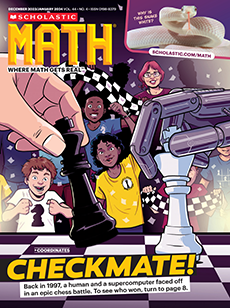Mikaila was 4 years old when her parents asked her to choose between doing more chores or earning money on her own to buy a doll. “I had enough chores already,” she says. After seeing an ad for a local business fair, Mikaila signed up. All she needed was a product to sell.
Then two things happened: First Mikaila’s great-granny gave Mikaila her cookbook with a recipe for honey flaxseed lemonade. Then, Mikaila was stung by bees. “I became terrified of bees,” she says. Mikaila’s parents had her do research to conquer her fear, and she learned that much of our food supply relies on bees—and that they’re dying off.
Now inspired to help bees, Mikaila set up a lemonade stand and began selling her great-granny’s recipe. Mikaila soon earned enough money to buy the doll, but she was hooked. She made posters, scored investment funds on Shark Tank, and began bottling her lemonade. Today, Mikaila is a high school senior, CEO of a multimillion-dollar beverage company, an author, and she’s donated thousands of dollars to help bees.
When Mikaila was 4 years old, she wanted to buy a doll. Her parents gave her a choice: Do more chores, or earn her own money to pay for it. “I had enough chores already,” says Mikaila. But she saw an ad for a local business fair and decided to sign up.
To start a business, Mikaila needed a product to sell. Then two things happened. First, Mikaila’s great-granny shared her cookbook with Mikaila. It included a recipe for honey flaxseed lemonade. Then, Mikaila was stung by bees. “I became terrified of bees,” she says.
Mikaila’s parents encouraged her to learn about bees to become less afraid of them. She learned that bees pollinate much of the food we eat—but that some species are dying off. Mikaila was inspired to help bees. So she set up a lemonade stand and began selling honey flaxseed lemonade.
Mikaila soon earned enough money to buy the doll. But she didn’t want to stop there. She made posters to advertise her business. She received money from investors on Shark Tank. She began bottling her lemonade to sell in stores. And she donated some of the profits to help bees.
